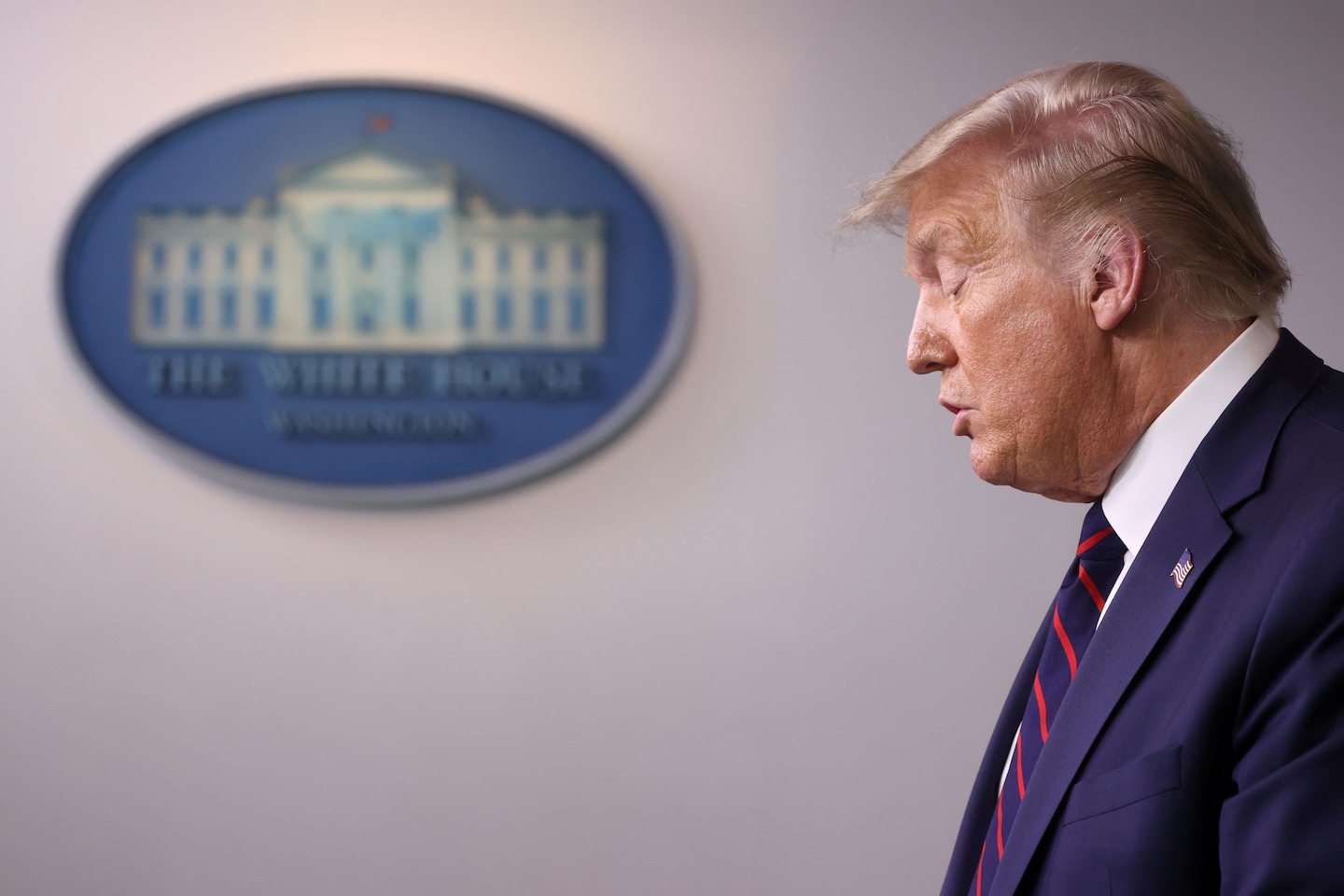White House, Democrats remain at odds over unemployment aid as relief talks continue

Trump’s comments came as negotiations about a new coronavirus relief bill ramp up on Capitol Hill, with top administration officials and congressional Democratic leaders setting a goal of reaching a deal by the end of this week, so it could pass Congress next week.
With the parties far apart on multiple issues, it’s unclear whether it will be possible to achieve that goal.
The lapsed unemployment benefit is a major sticking point in the talks. Congress in March approved a $600 weekly federal benefit for people who lose their jobs — on top of whatever state unemployment offices pay — but that enhanced payment expired last Friday. The millions of workers who had been receiving it are now in increasingly desperate straits as the economic recovery has stalled and deaths from the coronavirus continue to rise in a number of states.
Many Republicans argue that the $600 enhanced benefit acted as a disincentive for people to return to the workforce, because large numbers of unemployed people made more money on unemployment than they had at their jobs. In negotiations on Tuesday, Trump administration officials proposed reducing the figure to $400 weekly through early December, according to two people with knowledge of the talks. The offer was first reported by Politico.
However, Democrats have refused to move off the $600 figure, and dispute the notion that it acts as a disincentive. A recent study by three Yale economists found that workers receiving the extra benefits returned to work at about the same rate as others.
“We want to get funds to people so they can live. But we don’t want to disincentive those people from going back to work,” Trump said Wednesday when asked about the issue.
The enhanced unemployment benefit is one of multiple issues dividing the parties. Democrats’ starting point is a wide-ranging $3.4 billion bill the House passed in May. Republicans say they can’t support a figure anywhere near that high, with Treasury Secretary Steven Mnuchin calling it “just ridiculous” as he exited Tuesday’s negotiating session on Capitol Hill along with White House Chief of Staff Mark Meadows.
Mnuchin and Meadows will meet again Wednesday afternoon with House Speaker Nancy Pelosi (D-Calif.) and Senate Minority Leader Charles E. Schumer (D-N.Y.). The group has been meeting almost daily for more than a week, with the talks finally showing real progress on Tuesday as the negotiators set a timeline for making a deal and began trading offers.
The Trump administration has backed off efforts from last week to force Democrats to accept a stopgap extension of unemployment benefits and a lapsed eviction moratorium. Democrats have continued to insist on a comprehensive bill, which is now where the negotiations are focused. Senate Majority Leader Mitch McConnell (R-Ky.) last week introduced a $1 trillion counteroffer, but it came after days of delays and has not attracted the support of many Senate Republicans, and Trump never endorsed it.
In recent days, Trump has threatened to take unilateral action if no deal can be reached with Congress. He repeated that threat Wednesday, contending that he has “the absolute right” to unilaterally cut payroll taxes — a longtime goal of his that both parties on Capitol Hill oppose. At the same time, though, he said, “we’re negotiating right now.”
Another issue dividing the parties is aid to state and local governments. Democrats are seeking about $1 trillion in new aid for states and localities that are facing the prospect of mass layoffs because of a huge drop in tax revenue. Trump repeated his argument Wednesday that Democrats want a “bailout” of poorly managed states. It’s unclear where a compromise on that issue might lie.
Democrats also have grown increasingly focused on issues with the U.S. Postal Service. Mail delays have been occurring in various places, an issue that feeds into Trump’s warnings about the dangers of mail-in voting, claims that have no basis in reality. Schumer and Pelosi demanded Tuesday to meet with Postmaster General Louis DeJoy, so DeJoy will participate in a portion of Wednesday’s talks with Schumer, Pelosi, Mnuchin and Meadows.
The Democrats are now seeking $10 billion in spending for the Postal Service over a year, a change from the $25 billion over three years that was their original proposal, said the two people with knowledge of the talks, who spoke on the condition of anonymity to describe internal discussions.
Funding for child care is another issue at play. And, Mnuchin said Tuesday that he put a moratorium on rental evictions through the end of the year on the table. But Democrats won’t accept the offer because it doesn’t include assistance to renters or homeowners, so the housing issue is yet another matter that remains unsettled.
McConnell has not been taking part in the talks, although Mnuchin and Meadows brief him regularly. On Tuesday, McConnell acknowledged that Republicans aren’t unified and said he’d be willing to accept whatever deal the Trump administration officials strike with Democrats, even if it contains elements he opposes.
Congress passed four bipartisan bills in March and April totaling about $3 trillion, money that helped keep the economy from declining even more than it has. But the bipartisan urgency that prompted that action has faded with a sizable number of Senate Republicans unwilling to spend any more money at all.






